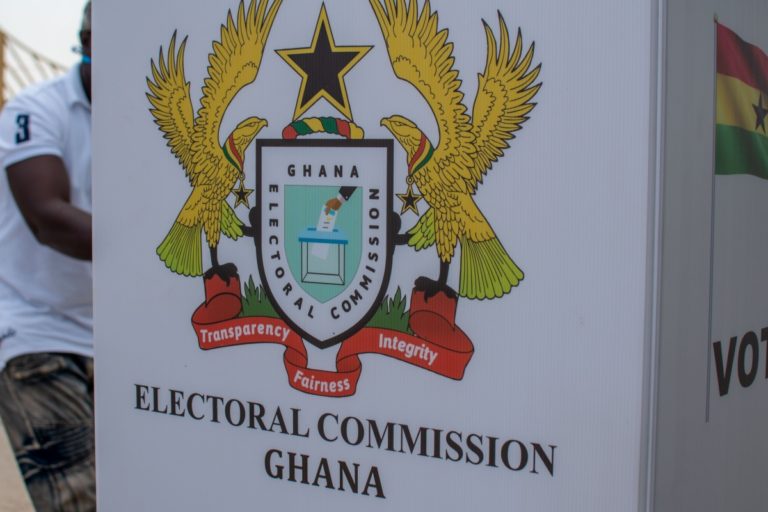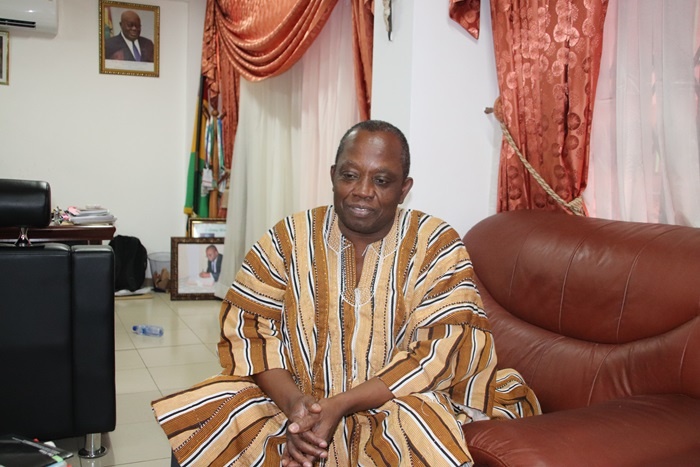Most Ghanaians in the diaspora are again set to miss out on the right to choose their representatives in the Legislature as well as the man who governs the land.
Though the Representation of the People Amendment Act (ROPAA) was passed way back in 2006 to allow them to register and vote outside Ghana, there has been no progress in implementing the law.
Indications from Ghana’s Parliament and the Electoral Commission of Ghana are that implementing this amendment will not be possible in 2020 despite being budgeted for.
According to Ghana’s Diaspora Affairs Bureau, there are an estimated 1.7 million Ghanaians abroad in at least 53 countries around the world. Some other figures point to 3 million Ghanaians residing abroad.
Concerns about their participation in the electoral process were heightened first because of the border closure brought on by the novel coronavirus and then the Electoral Commission’s unpopular decision to compile a new electoral roll in the midst of the pandemic.
The border closure meant the number of Ghanaians outside the country was much higher and there was a bigger spotlight on them. Citizens who would have otherwise been able to sidestep the non-implementation of ROPAA to return home and register to vote no longer had that option.
The government had been organizing return flights which the stranded Ghanaians were to pay for many of them did not arrive in time to meet the August 9 deadline. Some like Kingsley Dunyo, a businessman, was in Ghana during the tail end of the registration but stuck in a mandatory 14-day quarantine.
Kingsley had been stranded for five months in South Africa during which time he led cries for state intervention. Though times were dire for him and his fellow stranded Ghanaians in South Africa bigger livelihood concerns abounded, they never lost sight of their right to vote.
Now back in Ghana, after incurring significant debt to pay for his trip and quarantine fees, Kingsley is clear in his mind Ghana’s Electoral Commission is “disenfranchising a lot of people who could not make it back.”
Though the government is eyeing September 1 as a date to reopen borders, it may not make much of difference, Kingsley fears.
“I don’t see how it will be possible for the EC to say it is reopening registration centers for other people who are stuck there and waiting for the borders to be opened,” he said to Ubuntu Times.
The stranded Ghanaians aside, ROPAA was expected to benefit Ghanaians resident abroad for school, work and other business. They would not have to incur extra costs to travel to Ghana just to cast a ballot.
Ghana’s laws, before ROPAA, only allowed for citizens abroad working in Ghana’s diplomatic missions, persons working with international organizations of which Ghana is a member and students on government scholarships to be registered.
When the government made the expected request for such specific classes of Ghanaians to make their personal details available for registration purposes, other classes of Ghanaians in the diaspora felt salt was being poured in their wounds.
Richard Sky, a journalist currently in England working his way to the Bar, is the coordinator of a group pushing for the implementation of ROPAA. The group, known as aRTICLE 42 (which’s name references the section of Ghana’s constitution outlining the Right to Vote), petitioned the Electoral Commission on the concerns of Ghanaians abroad in June.
But it is yet to formally get a response from the commission to Sky’s chagrin. The perceived lack of urgency from the electoral body has also been a major concern.
“It is entirely unacceptable and does not meet the standards of public accountability that an institution of that kind must be living up to,” he said to Ubuntu Times. “The EC [Electoral Commission] does not seem to be in any haste whatsoever to ensure that qualified Ghanaians living or staying abroad are registered to vote in December 2020 and beyond.”
As a journalist, the hallways of Ghana’s Parliament were Sky’s hunting ground and he has always strived to hold legislators accountable. Even thousands of miles away, things are no different.

The Electoral Commission, when queried by the press on its shortcomings, reminded that it has presented some subsidiary legislation on the ROPAA implementation to the relevant committee in Parliament. However, attempts to pass the buck by the commission were met with scorn by an MP reviewing the legislation. He told the press the commission was being “deceitful”.
The back and forth notwithstanding, these pre-laying processes for legislation are more matters of practice and not necessarily requirements of law though there is valuable guidance on offer from legislative committees.
In Sky’s experience, these committee processes are “prone to possible abuse.” They can also be used “to frustrate any subsidiary legislation that both sides are minded, for whatever reason, not to want to see the light of day.”
Unsurprisingly, with the ambitions in the legal world Sky has, seeking legal redress remains an option for him and his group. He lauds the firmness of the judiciary in Ghana which has kept an eye on the case and already ruled in favor of some Ghanaians resident in the USA who sued in 2017 to compel the commission to operationalize ROPAA.
“The earlier they [the Electoral Commission] begin to show respect and deference to our courts by giving full effect to the provisions of the ROPAA, the better it will be for our democracy,” Sky remarked.
The problem though is that the courts really cannot stipulate how the Electoral Commission implements the law given the need to put in place detailed safeguards that will ensure the integrity of the electoral roll.
The courts gave the commission a one-year ultimatum to operationalize ROPAA in its ruling in December 2017. What has followed has been appeals for an extension and cries for contempt charges.
The lack of progress despite legal redress brings to bear wider failings in Ghanaian governance for some observers like Nii Kotei Nikoi, an Assistant Professor at the College of Wooster in the USA. He too will be bearing the tag of the disenfranchised.
Nii Kotei points straight at the elephant in the room; the lack of political will. This point becomes starker when one considers the extent to which the government went to ensure there was a new register for the 2020 polls.
“You think about how there was so much political will in pushing for a voter registration that was so unpopular… and to do that in the midst of a pandemic,” Nii Kotei noted to Ubuntu Times.
With his work and schooling commitments in the USA, Nii Kotei has been based abroad and fits the profile of the Ghanaian in the diaspora meant to benefit from the ROPAA.
These Ghanaians do not only contribute to nation-building with much-touted remittances but have been “contributing culturally and socially as well,” Nii Kotei reminds. The non-implementation of ROPAA is thus an unacceptable outcome for him.
But whilst people like Sky affirm the role of the courts in holding Ghana’s Electoral Commission in check, Nii Kotei operates with more skepticism.
He maintains that the courts and Ghana’s “cumbersome” judicial system must not be the only mechanism for which we kind of demand accountability from the commission. In his view, more citizen action is the next step.
“We need to have some kind of social movement that is putting some kind of public pressure on these government institutions to implement the process.”

















